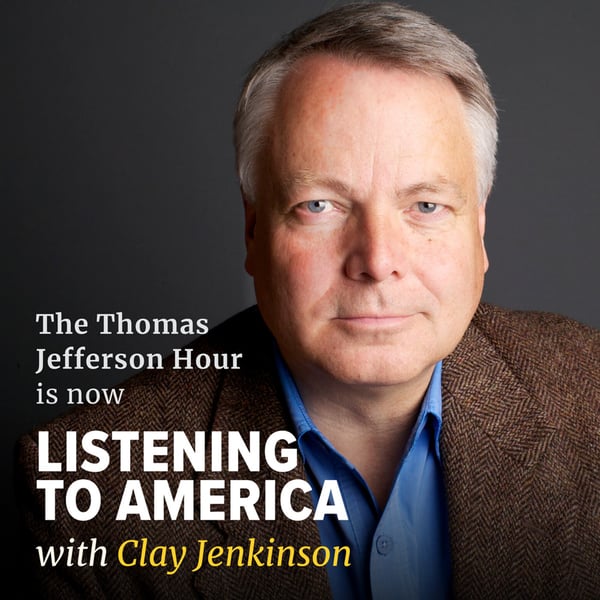#1625 Do We Have an American Narrative?
Listening to America
Listening to America
4.6 • 1.1K Ratings
🗓️ 12 November 2024
⏱️ 59 minutes
🧾️ Download transcript
Summary
In an interview recorded on October 29, 2024, Clay interviews the eminent classicist, Edward Watts of the University of California, San Diego, on the collapse of the American narrative. The old narrative that began when Columbus bumped into the New World and then moved through the colonial period, the American Revolution, the Westering movement, the Indian Wars, and America’s reluctant intervention in the 20th century’s two world wars has been discredited by the cultural revolution of the last 30 years. It is now possible to imagine an American narrative that would satisfy most of the constituencies of the United States. What happens when a nation loses its capacity to understand its mission, values, and history? Professor Watts is one of the world’s leading experts on the collapse of the Roman Republic. How did Rome recover after its disastrous Civil Wars? Can America learn from Rome’s example?
Transcript
Click on a timestamp to play from that location
| 0:00.0 | Hello, everyone, and welcome to this introduction to the podcast edition of this week's program. |
| 0:07.1 | I had the most amazing conversation with Professor Edward Watts of the University of California at San Diego. |
| 0:15.0 | He's the author of a number of books on Rome. |
| 0:18.5 | He's got a new one that he's just finished and will be out in a year or so, |
| 0:23.2 | a 1,200-year history of Rome, which I just can't wait to have. He's a very clear writer, |
| 0:29.5 | he's an amazing scholar. He just got back from a trip to Rome. He was telling me about it before |
| 0:36.0 | we went on the air. It was amazing. He got to go in |
| 0:38.7 | with his conference, with a group of other classes, to the Senate building in the forum. I've seen |
| 0:43.8 | it, you know, 30 times, but never been in it. It's possible to get in it. They had a session in it, |
| 0:50.7 | and it changed the way he thought about the way the Roman Senate worked because of the |
| 0:55.0 | acoustics of the building and so on. It was absolutely amazing and that's before we started to |
| 1:00.3 | record and the question that I wanted to ask him was how does a nation in collapse create a new |
| 1:07.6 | narrative that can build a consensus of most of the people of the country. |
| 1:14.7 | So when Rome collapsed between, say, 200 BC and 44 BC or even after, Rome was in a state of |
| 1:22.2 | collapse. The Republic was dead. And believe me, it was infinitely worse than what we're going through because there were |
| 1:28.7 | prescription lists of people to be killed and rounded up, tortured and killed, including people |
| 1:34.5 | from very prominent families and so on. So here we are. And out of the collapse of Rome came Virgil's Aeneid, which was sort of state-sponsored |
| 1:47.2 | propaganda. That's to put it too starkly, but it was a commissioned piece of work. And in the Aeneid, |
| 1:55.5 | one of the world's greatest books, which was universally read until about 30 years ago by everybody, everywhere in the West, |
| 2:04.1 | the Aeneid creates a new narrative for Rome, dating back to the Trojan wars, but culminating |
| 2:11.1 | in the coming of Augustus to bring a Pax, a Romana, to the world. And that book became |
| 2:17.3 | the centerpiece of how Rome understood itself for a thousand years, a Romana to the world. And that book became the centerpiece of how Rome understood |
... |
Please login to see the full transcript.
Disclaimer: The podcast and artwork embedded on this page are from Listening to America, and are the property of its owner and not affiliated with or endorsed by Tapesearch.
Generated transcripts are the property of Listening to America and are distributed freely under the Fair Use doctrine. Transcripts generated by Tapesearch are not guaranteed to be accurate.
Copyright © Tapesearch 2025.

